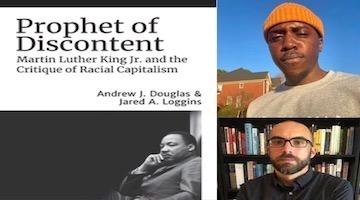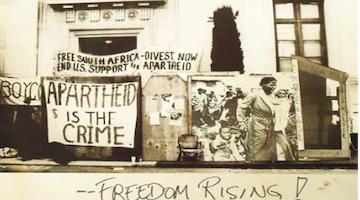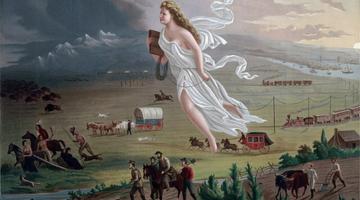The US long war on the Black liberation movement is far from over.
“Puerto Rican liberation activist William Morales is included in the latest resolution to lynch Assata Shakur.”
During the height of the Black Lives Matter movement, Assata Shakur’s name saw increased recognition. A section of her autobiography was used as a slogan in demonstrations against racist policing throughout the country, “It is our duty to fight for our freedom.It is our duty to win.We must love each other and support each other.We have nothing to lose but ourchains.” This statement, while powerful, was unable to ignite a broad conversation in the Black Lives Matter movement or U.S. society in general on the plight and condition of Assata Shakur. As Executive Editor of BAR Glen Ford noted, the “soft power” of U.S. imperialism in the form of corporate philanthropy has played a significant role in watering down the politics of what is now a much quieter movement than what existed in the twilight years of the Obama era. Yet Assata Shakur’s current situation is a reminder that the U.S.’ long war on the Black liberation movement is far from over.
Senate Democrat Bob Menendez and Senate Republican Marco Rubio have introduced a resolution in the Senatethat demands for the immediate extradition of Assata Shakur from Cuba. The resolution comes as U.S. aggression toward Cuba has escalated in the form of tighter sanctions and travel restrictions. There is no better time for the lynch mob in the U.S. imperial state to intensify their hunt of Assata Shakur. The Democratic Party is seeking to regain the Oval Office from the Republicans in the 2020 election. Furthermore, U.S. imperialism has failed in its attempt to overthrow the socialist government in Venezuela. Gusano Cuban voters in the U.S. know that the fate of Venezuela is intimately tied to Cuba’s and base their electoral decisions on which candidate is most hostile toward the Cuba-Venezuela alliance.
“U.S. aggression toward Cuba has escalated in the form of tighter sanctions and travel restrictions.”
Of course, Assata Shakur is not merely a domino in the U.S.’ war against Cuba and Venezuela. She is a Black revolutionary whose escape from prison in 1979 has forever been an embarrassment for the U.S. ruling class. Assata has lived in Cuba under legal asylum since 1984. Since then, the U.S. has failed to bully Cuba into releasing her into the hands of the U.S. national security state. Cuba has made it clear that its loyalty resides with the dictates of international law, not with U.S. imperialism. While few in the U.S. recognize the existence of political prisoners in the United States, socialist Cuba has provided safety for Assata Shakur in part because the Cuban people have firsthand knowledge that only torture, abuse, and death awaits her in the United States.
Rarely in the toxic political environment of the United States is the question asked: Why is Assata Shakur so despised by the U.S. state? The ruling class describes Shakur as a “cop killer” who needs to be brought to justice. What lies beneath the accusation is the U.S. imperialist war against the Black liberation movement. Dozens upon dozens of former members of the Black Panther Party have been accused of murdering police officers with little to no evidence and assigned to permanent incarceration. This includes Mumia Abu-Jamal, Sundiata Acoli (who was with Assata Shakur on the day of the “shootout” on the New Jersey turnpike), and Russell Maroon Shoatz.
“There has been no peace treaty in the U.S. war on the Black liberation movement.”
The question of innocence is not the principle contradiction in the lives of the U.S.’ prisoners of war. Innocence is a moral value that, when taken in the abstract, can fit the needs and interests of those who define the term. Prisoners of war such as Assata Shakur were engaged in a struggle to ignite a revolution in the United States that would grant Black Americans and the rest of the oppressed the right to determine their own destiny. For this, they were brutally and violently attacked by the full weight of the police state. There has been no peace treaty in the U.S. war on the Black liberation movement and the most recent bipartisan resolution to lynch Assata Shakur is an indication that the war won’t end until imperialism is put to rest.
The struggle to free political prisoners and prisoners of war is critically important in the larger goal of overthrowing the ruling capitalist oligarchy of U.S. imperialism and replacing it with a socialist system capable of meeting the needs of the masses. Assata Shakur’s contribution to this struggle goes far beyond the popular slogan taken from her autobiography. Assata is a former member of the Harlem chapter of the Black Panther Party (BPP). She would go on to leave the BPP and join the Black Liberation Army (BLA). The BLA conducted guerrilla activities in service of the waning Black liberation movement and was the principle force that freed Assata from prison.
“The left must not only ‘say her name,’ but also join organizations that are committed to fighting back.”
Black leaders such as Assata Shakur are feared by the ruling class in its entirety. Assata Shakur’s continued suppression speaks to the enduring influence of the Black Radical Tradition on the political class in the United States. In 2013, the FBI increased the bounty on Assata’s head from one million to two million US dollars. Menendez and Rubio’s resolution to extradite Assata is thus no aberration. It is but another phase in the ongoing war on U.S. political prisoners and prisoners of war—a war that seeks to smother the flame of socialism and self-determination before it can gather strength in the current period.
The case of Assata teaches new left organizers, scholars, and activists many lessons in the struggle to come. First, even though their names are rarely mentioned, the U.S. effort to murder and erase political prisoners such as Assata Shakur and her comrades continues into the present day. This means that the left must not only “say her name,” but also join organizations that are committed to fighting back against the ongoing effort to destroy and neutralizeU.S. political prisoners.Second, Assata’s historical trajectory shows the importance of developing solidarity with oppressed nations and peoples under attack from U.S. imperialism. Assata is not the first Black revolutionary protected by the Cuban people. Robert Williams, Huey P. Newton, and Puerto Rican liberation activist William Morales have also received protection from the socialist nation. William Morales is included in the latest resolution to lynch Assata Shakur. With the U.S. on a path of endless war abroad, the left will need to cultivate relationships with organizations and nations abroad to leverage the political power of the struggle for self-determination and socialism in the United States.
“Both corporate political parties in the United States are loyal soldiers in the war.”
Lastly, Assata teaches us that the technologies of the state used to destroy the Black liberation movement have been expanded to consume the entire infrastructure of the U.S. national security state. U.S. imperialism has the most expansive military apparatus in human history. Every person within the U.S’ colonial borders is the target of surveillanceby the NSA. The National Defense Authorization Act of 2012 gave sitting U.S. presidents the ability to place an individual under indefinite military detention without cause or due process. One in three Black men can expect to spend time in the mass incarceration regimein their lifetime. This is not to mention that the concrete war against the Black liberation movement has birthed a new program all together in the form of the FBI’s systematic targeting of “Black Identity Extremists.”As the newly organized Black Identity Extremist Abolition collective points out, it is difficult to trace the impact of the FBI’s Black Identity Extremism program. However, the mysterious deaths of several Ferguson activistsappear to indicate that the program is fully operational and represents a serious threat to the lives of Black Americans across the country.
Thus, the long war on the Black liberation movement continues. Both corporate political parties in the United States are loyal soldiers in the war. Menendez and Rubio’s collaborative effort to lynch Assata Shakur is a show of force against the socialist nation of Cuba, which has steadfastly defended the human rights of U.S. political prisoners. The resolution is further rooted in the understanding that Black leaders such as Assata Shakur and Mumia Abu-Jamal present a dangerous alternative to the stagnant and dead-end political and economic conditions of U.S. imperialism. The ruling class will stop at nothing until the memory and lessons of the Black liberation movement are fully buried from consciousness. We must remember that the war on the Black liberation movement did not end in the 1970s and to stop at nothing to free our political prisoners.
Danny Haiphong is an activist and journalist in the New York City area. He and Roberto Sirvent are co-authors of the book entitled American Exceptionalism and American Innocence: A People’s History of Fake News -- From the Revolutionary War to the War on Terror (Skyhorse Publishing). He can be reached at wakeupriseup1990@gmail.com and on Twitter at @SpiritofHo.
COMMENTS?
Please join the conversation on Black Agenda Report's Facebook page at http://facebook.com/blackagendareport
Or, you can comment by emailing us at comments@blackagendareport.com



















